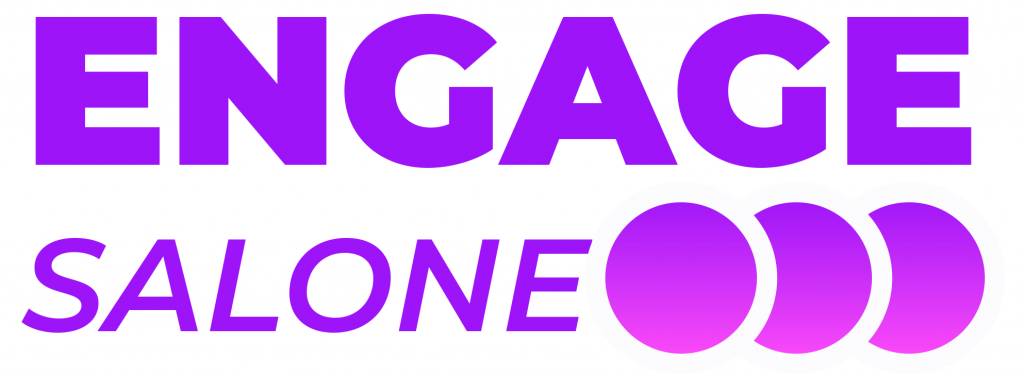This week, the Government briefed the media on the implementation of the recommendations of the Commissions of Inquiry (COIs) and White Paper. Cutting it short, properties belonging to some of the people found wanting by the COIs have been seized by the State, as recommended. There is a lot more to be confiscated. Among other things, the COIs uncovered a lot of cases of unexplained wealth or “dishonest acquisition”, as the judges described it. Recognising that unexplained wealth is a serious problem across all sectors in Sierra Leone, it is important that we bring it into focus, highlighting the need for greater scrutiny of wealth and acquisitions.
Call it unexplained wealth, illicit enrichment, dishonest acquisition or whatever, public officials accumulating resources that their incomes cannot justify is a huge part of the corruption problem in Sierra Leone. When someone’s legitimate income does not match their wealth and they cannot properly, reasonably, and convincingly explain how they can afford the opulence they enjoy, then there are obviously going to be questions. And one of those questions is “how?”. Unfortunately, this does not seem like an area that the Anti-Corruption Commission (ACC) is keen on although the law recognises this problem and is quite clear about it. It is the reason that declaration of assets is mandatory for public officials. It is also the reason that corrupt acquisition and unexplained wealth are offences in the Anti-Corruption Act of 2008 and its 2019 amendment.
Without pointing fingers at anyone, we have to acknowledge that unexplained or underserved wealth is widespread and unfortunately, normalised in our society. It is not uncommon for people who hold public offices, especially those who come via the political conveyor belt, to experience a sudden change in fortunes and miraculous improvement in lifestyle which their salaries and regular incomes cannot support. Suddenly, massive (ugly) houses start going up on multiple fronts; and the model and size of their cars (also, some very ugly cars) start changing. Everything changes but their taste—it remains bad and classless, and as you know, money does not buy class. You would find them or their undeserving relatives with bodyguards making a nuisance of themselves in nightclubs and bars. We had to add that! And the problem goes beyond the public sector–there are too many people living like magicians.
As a society generally, we are also culpable because we do not scrutinise the way our friends and relatives make their money. We do not care to know how a public official, who got their first proper job when their party came to power a few years ago and earns less than NLe 5,000-10,000 can afford to quickly assemble a massive house of their dreams. We do not care to know how they and other public officials can buy expensive ugly cars and make huge donations to community and church projects. In fact, we would pray for them in churches and mosques, and consider the lucre they donate as “blessings” from God. Corruption and theft are so normalised as long as it is done by the people we know and love.
Unexplained wealth and corrupt acquisition charges are probably the lowest-hanging fruits in tackling corruption. We have seen how much the COIs were able to unearth in this regard. So, you begin to wonder why the courts are not full of public officials defending themselves in cases of unexplained wealth. Instead, the ACC believes in going after soft targets—teachers, students, officials from the previous administration and NGO workers, while current post holders, especially those at the top are probably busy amassing and hiding wealth that they cannot properly account for.
The asset declaration safeguard, which is meant to help us track the way public officials acquire assets, is still shrouded in secrecy. It is only fair that citizens know what top government officials own at the time they assume and leave office. In the present arrangement, only the ACC knows how much the President, his vice and other members of his government were/are worth. President Bio declared his assets when he assumed office in 2018 and since then it has been all quiet. We do not even know whether the First Lady has had her assets declared. Remember, the First Lady runs an office that we are made to believe is in the Presidency, receives state funding and therefore qualifies as a “public officer” in the eyes of the anti-corruption laws. It is important that when people at the level of the presidency fulfil an important legal obligation such as a declaration of assets, the public is made fully aware of it. It should not be a secret. We will be exploring this separately. For now, let us return to the general subject of unexplained wealth.
We would want to believe that a sharp focus on unexplained wealth by the ACC, targeting high to middle-level public officials, will go a long way in deterring corruption. Obviously, people are becoming smarter in the way they hide their wealth, especially when you consider the opaque financial systems that make it hard to know who owns what in safe havens or who owns what property in some of the Western capitals. But that should not be a problem because it took the COIs very little time to find what they found and instead of waiting for another big money inquiry, the ACC can shift from chasing soft targets and past officials to a more present-facing approach that is real-time. We dare you, ACC! When the government says they want to make corruption unfashionable and costly, you would imagine that a focus on unexplained wealth should be a good starting point that can yield a lot of results. It is, definitely, worth the ACC’s time.
Whatever you are up to this weekend, have a good one. And let’s think about unexplainable wealth.


